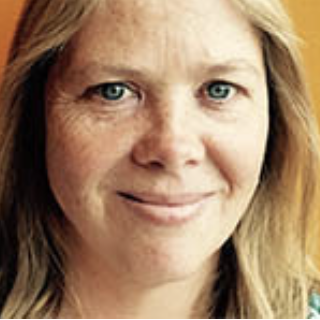The ‘ethnicity awarding gap’ is well known within universities as a phenomenon whereby white students are statistically more likely to receive a higher class university degree within the UK higher education system, compared with their ethnic minority counterparts.
However, during the COVID-19 pandemic, this gap narrowed considerably for all graduates. National data suggest that the ethnicity awarding gap fell by 3.4 percentage points in 2019/2020, compared with an average fall of 0.3 percentage points in previous years (See Figure 1)[1].
In a report, the higher education charity Advance HE says this may be owing to the changes in assessment methods adopted during the pandemic. “The decrease in the white- Black, Asian and minority ethnic awarding gap possibly reflects the greater and, as some would claim, fairer and more flexible use of results from coursework and continuous exams to determine awards. It is unclear, though, whether this signals a new trend.[1]”
In July 2020, The Pharmaceutical Journal showed for the first time that there was an ethnicity awarding gap among pharmacy degree graduates in the UK, after analysing official results data from 2017/2018 and 2018/2019, submitted by universities to the Higher Education Statistics Agency (HESA).
Overall, 91% of white UK graduates were awarded first class or upper second class honours, compared with 79% of ethnic minority UK graduates over the same time period. This equated to a statistically significant 12 percentage point gap.
An updated analysis now shows that the ethnicity awarding gap for pharmacy degree graduates in 2019/20 and 2020/21 has followed a similar pattern to that seen nationally in other degrees, narrowing to 8 percentage points.
Data from 5,210 students, who graduated with a MPharm degree from 30 universities in 2019/2020 and 2020/2021, with a recorded ethnicity and degree classification, were used in the analysis. Just over two-thirds (69%) of graduates were from an ethnic minority background (see Figure 2A). The analysis revealed that 94% of white graduates were awarded a first or upper second class degree, compared with 86% of ethnic minority graduates (see Figure 2B).
When broken down by individual ethnicities, these new data suggest that, although the percentage of students achieving a higher class of degree has increased for all ethnicities, a statistically significant awarding gap remains between white pharmacy graduates and their ethnic minority counterparts (chi-squared test; P<0.05 for all comparisons).
However, compared with the two years before the pandemic hit, the gap has narrowed for graduates from all ethnicities except those of mixed race, where it has stayed the same; although, there were only 95 students in this group. The largest narrowing was for students of other Asian ethnicity, where the gap decreased from 15 percentage points to 4 percentage points (See Figure 3).
There remain significant differences between universities in terms of the ethnicity awarding gap.
We were not able to publish data from all universities because some have small numbers of either white or ethnic minority students, which could allow identification of individuals.
For the years 2017/2018 and 2018/2019, analysis by The Pharmaceutical Journal revealed that there was considerable variation between universities, with 18 showing ethnicity awarding gaps of up to 37 percentage points in favour of white pharmacy graduates and 4 showing gaps in favour of ethnic minority graduates of up to 5 percentage points; all 4 of these had a high proportion of ethnic minority students — at least 90% for each university.
The new analysis for 2019/2020 and 2020/2021 reveals that, for those for which we could publish data, 15 universities show an ethnicity awarding gap of up to 37 percentage points in favour of white pharmacy graduates. However, 3 universities show an awarding gap in favour of ethnic minority graduates of up to 3 percentage points.
Some universities narrowed their awarding gaps by up to 20 percentage points, (compared with 2017/2018 and 2018/2019), while others saw a widening of their gap by up to 19 percentage points (see Figure 4).
It should be noted that small differences can make a large impact on a university’s awarding gap; in many cases, the gap comes down to a difference of only a handful of students achieving a first or upper second class degree.
Work is ongoing to understand why this narrowing of the ethnicity awarding gap has occurred.
The University of Reading has almost closed its ethnicity awarding gap, going from 22 percentage points in favour of white students to 2 percentage points. Katrina Bicknell, its head of the department of pharmacy, said that although she could only “speculate” on why this might be, they had found that online teaching enabled some students to shine.
“We have recognised that online learning resources offer our students the ability to learn at their own pace and at times of their choosing,” she said. “Our students are often balancing their need to fully commit to their studies, with all the financial pressures of being a student, and working to support their studies whilst keeping in touch with friends and family.
“Online resources provide opportunities for students who might be unable to travel to campus to engage with their studies when, in the past, they would have been left to catch up on their own”

Katrina Bicknell, head of the department of pharmacy, University of Reading
“Online resources provide opportunities for students who might be unable to travel to campus to engage with their studies when, in the past, they would have been left to catch up on their own. We have now returned to our pre-pandemic, face-to-face teaching delivery and assessment formats with enhanced online support. We will continue our work to close the awarding gap entirely.”
Katie Maddock, chair of the Pharmacy Schools Council and head of the School of Pharmacy and Bioengineering at Keele University, which has eliminated its ethnicity awarding gap, says the move to online assessments is responsible for the narrowing of the gap.
Speaking to The Pharmaceutical Journal in November 2022, she said: “We know how: it’s the move to online assessment. But the ‘why’ is going to take a few years to untangle.
“We all had to move to online assessments of some sort. So, the philosophical question is: what was the difference? What was holding those students back in the first place? Is it a confidence thing? Is it that they are better at applying rather than regurgitating?
“So, did we move to a more authentic form of assessment that allowed the students to really perform to the best of their abilities?
“We all had to move to online assessments of some sort. So, the philosophical question is: what was the difference? What was holding those students back in the first place? Is it a confidence thing? Is it that they are better at applying rather than regurgitating?”

Katie Maddock, chair of the Pharmacy Schools Council and head of the School of Pharmacy and Bioengineering, Keele University
“It was very encouraging to see, and I do think a move to more authentic assessments is a good thing. How do we keep that authenticity and keep confidence in what we’re doing at the same time?”
Other schools highlight ongoing work to measure and analyse students’ performance in order to close the gap. A spokesperson for the University of Nottingham’s School of Pharmacy said: “As a result of the new [General Pharmaceutical Council’s] standards for the initial education and training of pharmacists, we have also ensured the teaching and assessments in our newly designed MPharm are varied to enable all students to demonstrate their strengths. Our MPharm redesign was co-created with student interns to ensure it met student needs.
“One of the initiatives from this was to introduce an Equality, Diversity and Inclusion (EDI) teaching element every year to consider, over the course of the degree, all the protected characteristics. Additionally, the university has now made available continuation data from year 1 to year 2 and module statistics by ethnicity. This will enable us to better track student progress and identify any areas for improvement.”
“Our MPharm re-design was co-created with student interns to ensure it met student needs. One of the initiatives from this was to introduce an Equality, Diversity and Inclusion teaching element every year to consider, over the course of the degree, all the protected characteristics”
Spokesperson for the University of Nottingham’s School of Pharmacy
A spokesperson for Cardiff University’s School of Pharmacy and Pharmaceutical Sciences, said: “The school has increased the ways in which we measure and analyse our students’ performance across a range of characteristics. These are scrutinised and explored at the school’s EDI and Education and Students committees, in order to understand the multiple intersecting factors that contribute to differences in attainment.
“It is crucial that we avoid the assumption that our diverse [black and minority ethnic] students are a homogenous community with similar student experiences. Our personal tutors and academic staff continue to work with students at an individual level to provide tailored pastoral and wellbeing support, as well as constructive advice and feedback on academic progress.”

Health inequalities
The Royal Pharmaceutical Society’s policy on health inequalities was drawn up in January 2023 following a presentation by Michael Marmot, director of the Institute for Health Equity, at the RPS annual conference in November 2022. The presentation highlighted the stark health inequalities across Britain.
While community pharmacies are most frequently located in areas of high deprivation, people living in these areas do not access the full range of services that are available. To mitigate this, the policy calls on pharmacies to not only think about the services it provides but also how it provides them by considering three actions:
- Deepening understanding of health inequalities
- This means developing an insight into the demographics of the population served by pharmacies using population health statistics and by engaging with patients directly through local community or faith groups.
- Understanding and improving pharmacy culture
- This calls on the whole pharmacy team to create a welcoming culture for all patients, empowering them to take an active role in their own care, and improving communication skills within the team and with patients.
- Improving structural barriers
- This calls for improving accessibility of patient information resources and incorporating health inequalities into pharmacy training and education to tackle wider barriers to care.
- 1Advance HE launches ‘Ethnicity awarding gaps in UK higher education in 2019/20’ report. Advance HE. 2021.https://www.advance-he.ac.uk/news-and-views/advance-he-launches-ethnicity-awarding-gaps-uk-higher-education-201920-report (accessed 9 Mar 2023).


